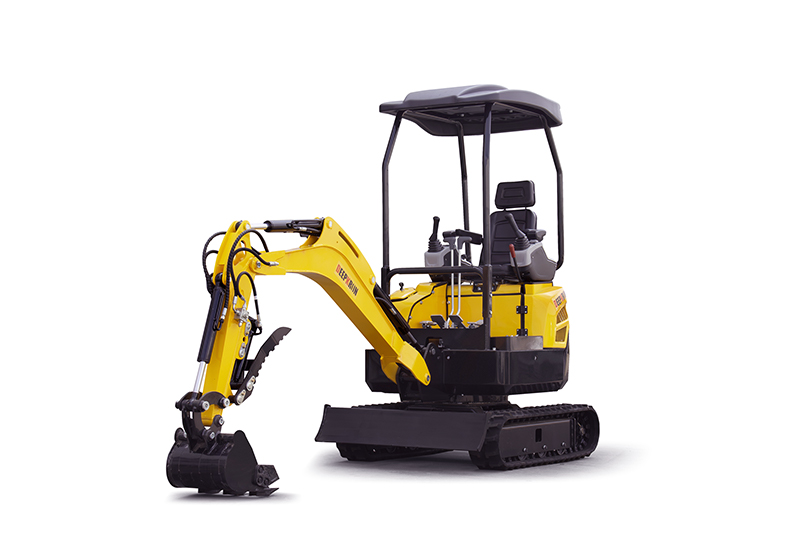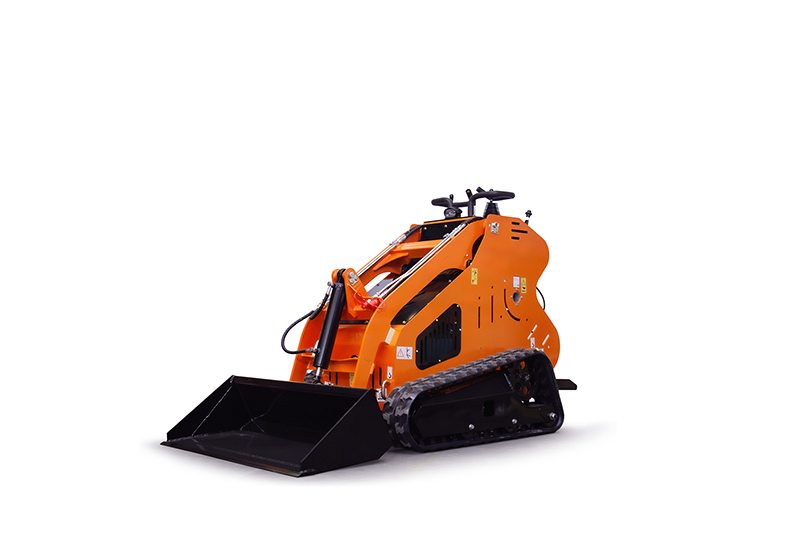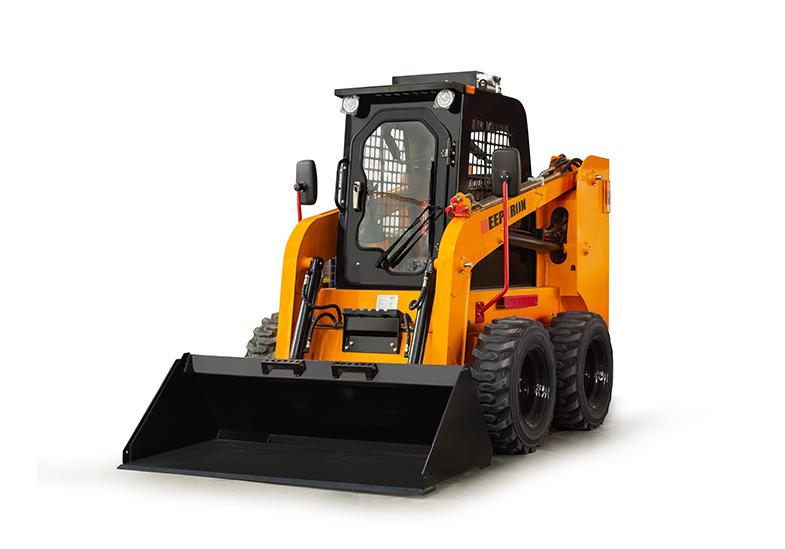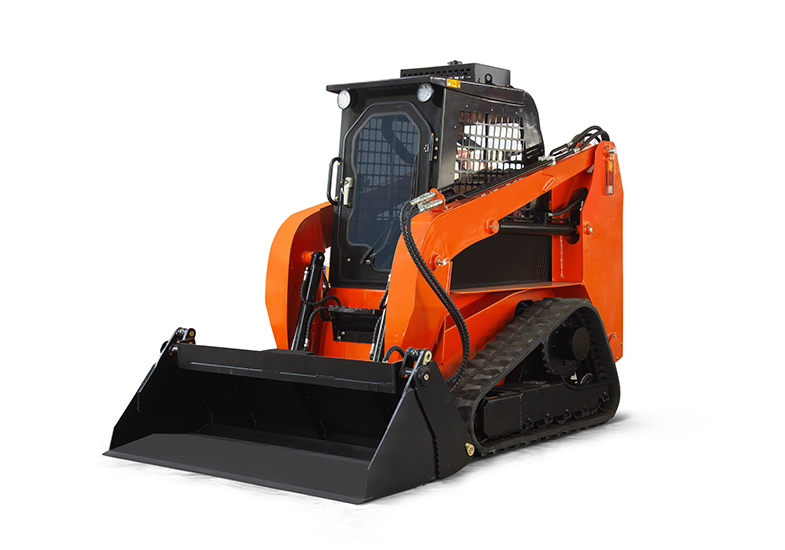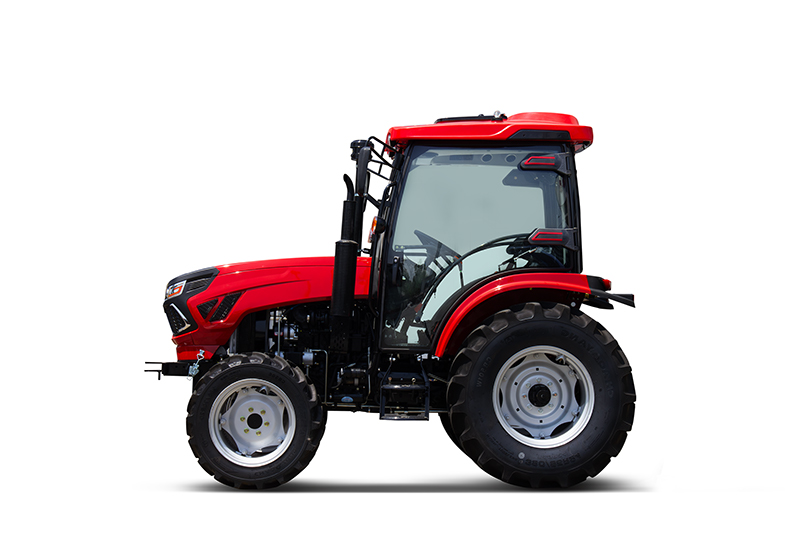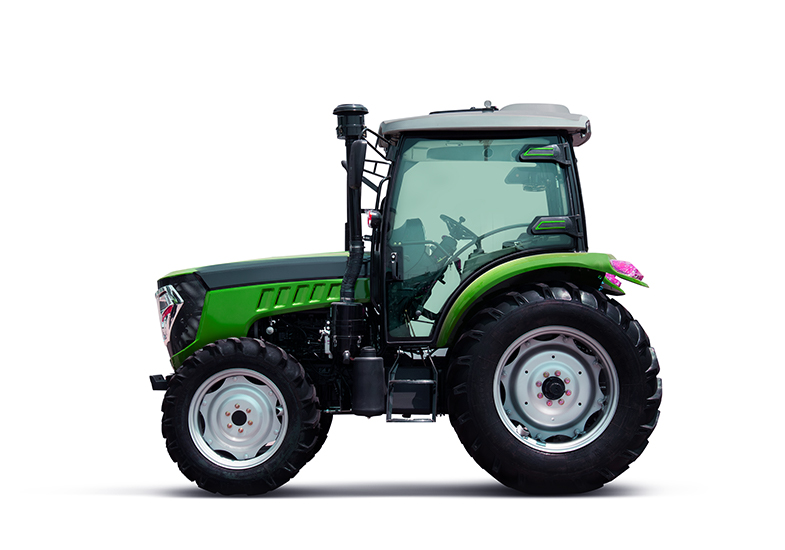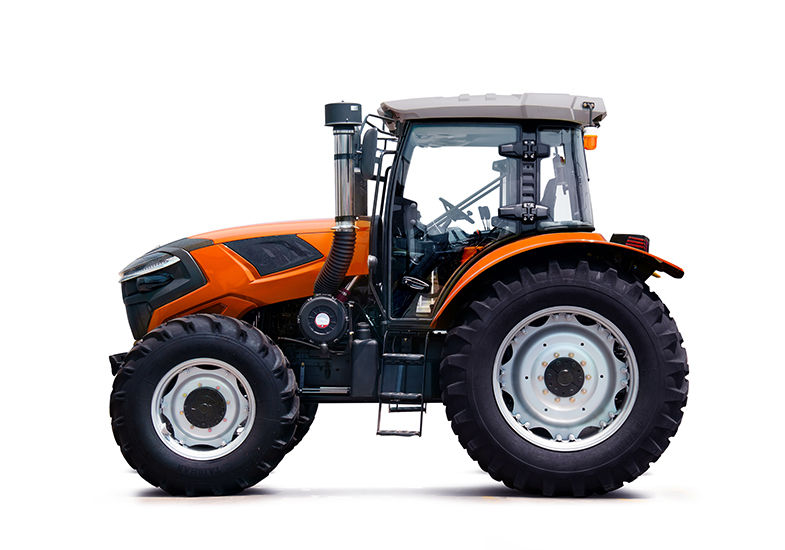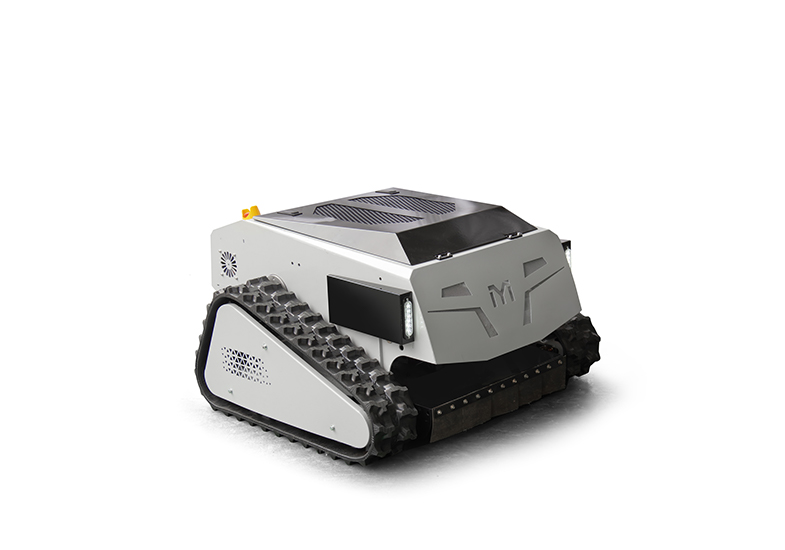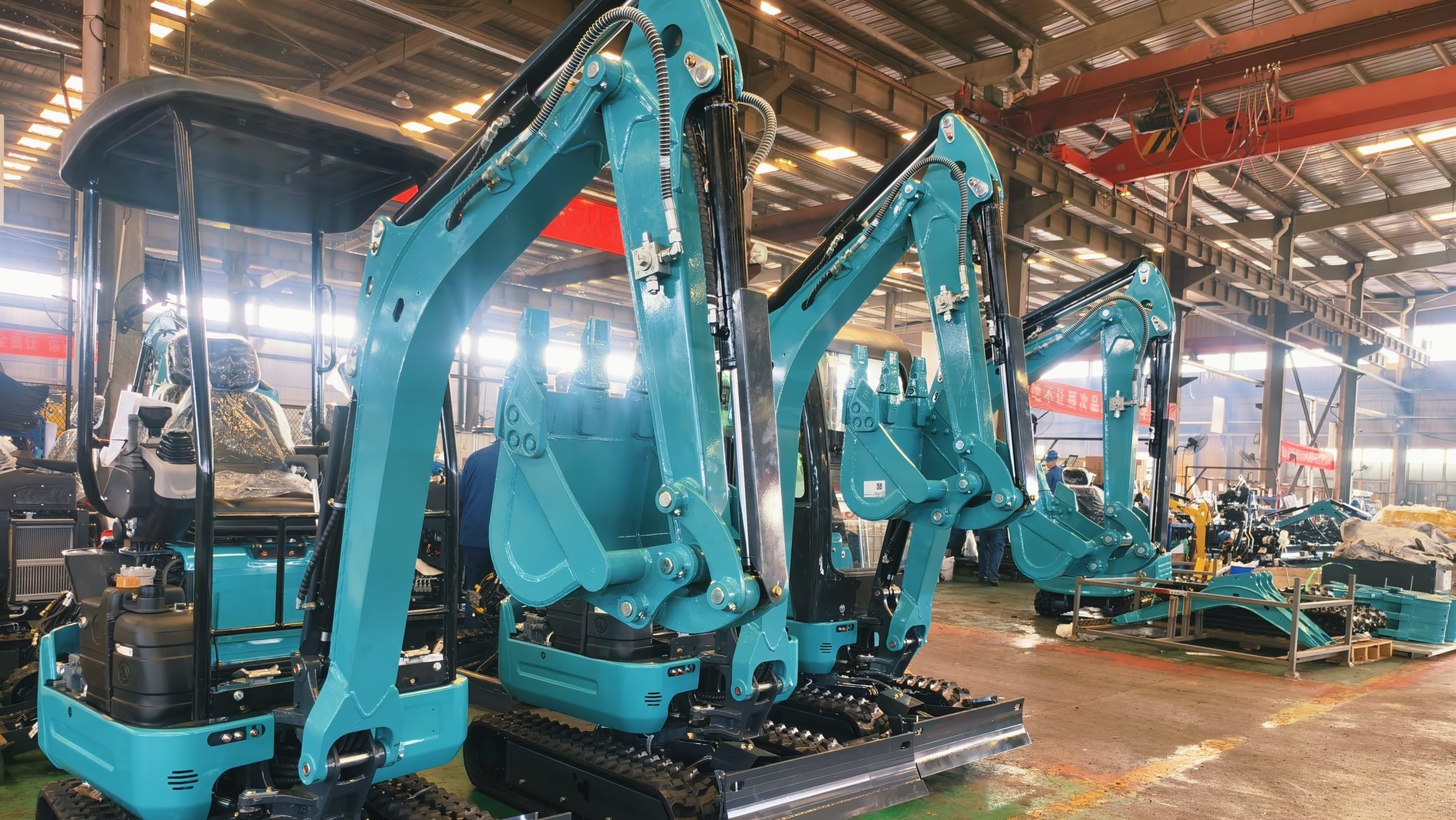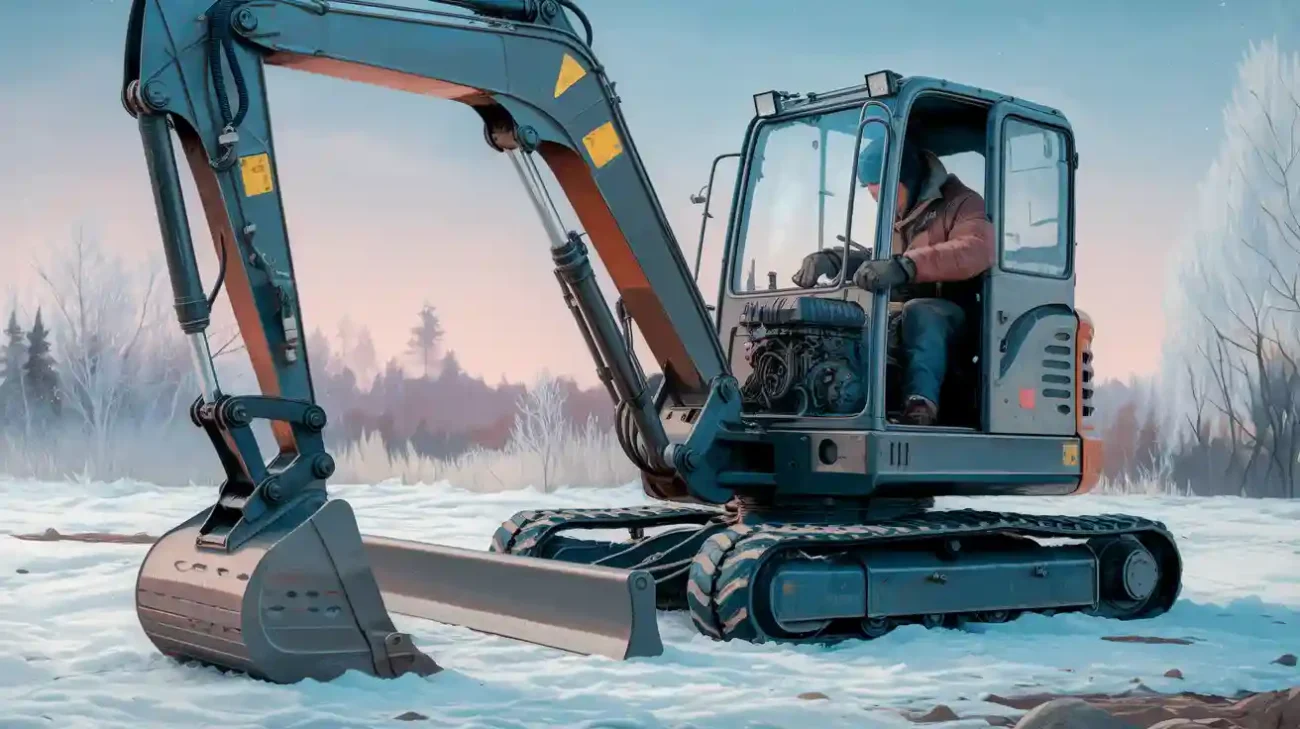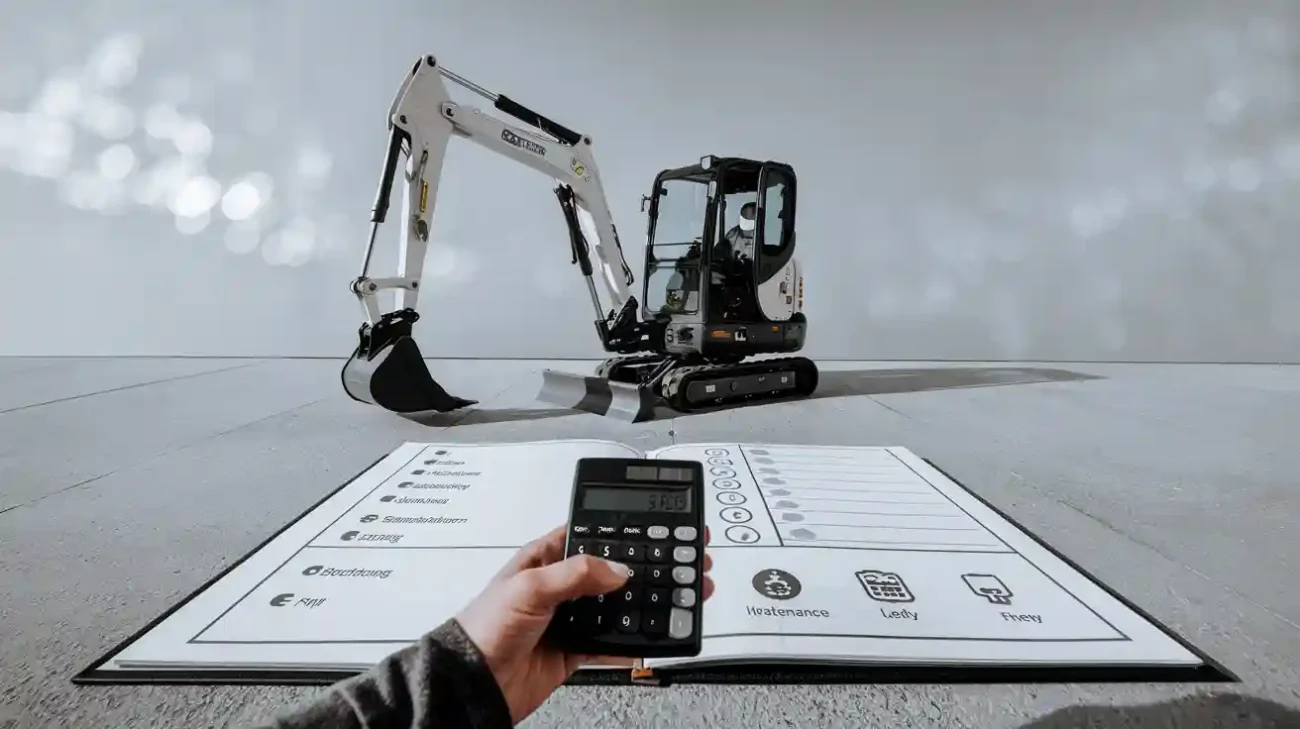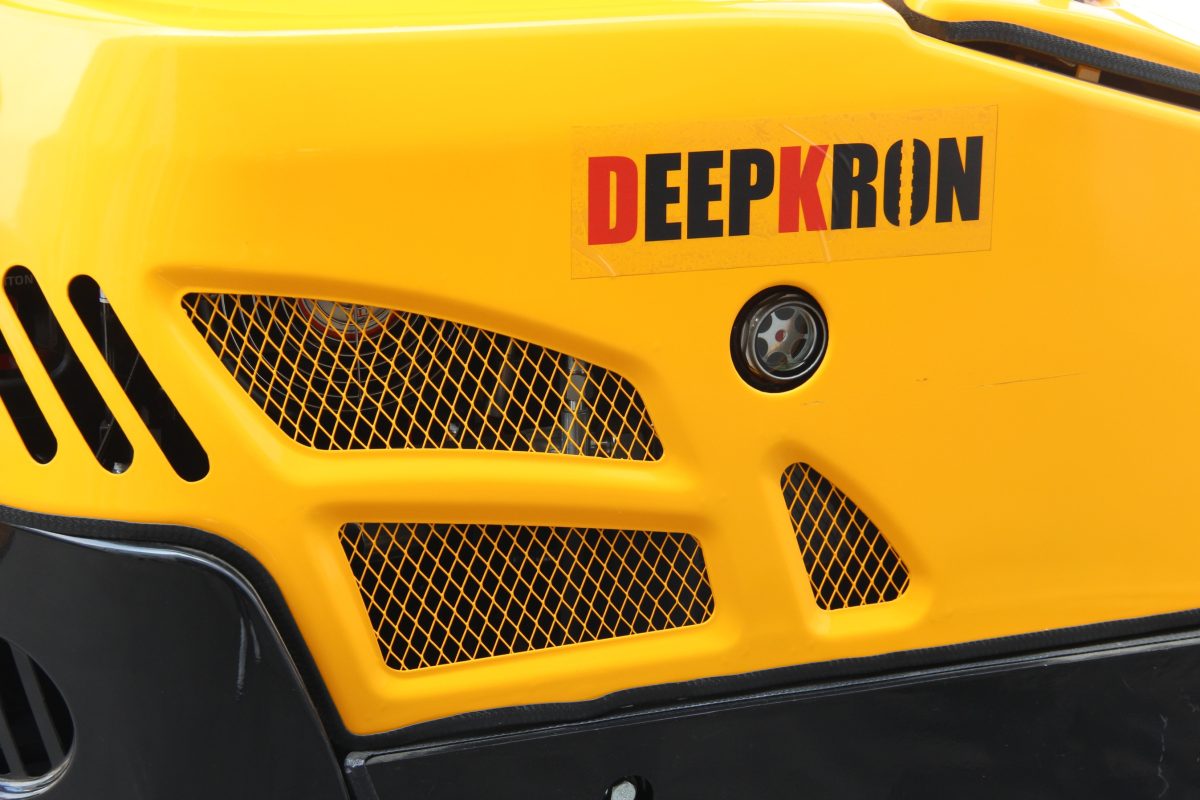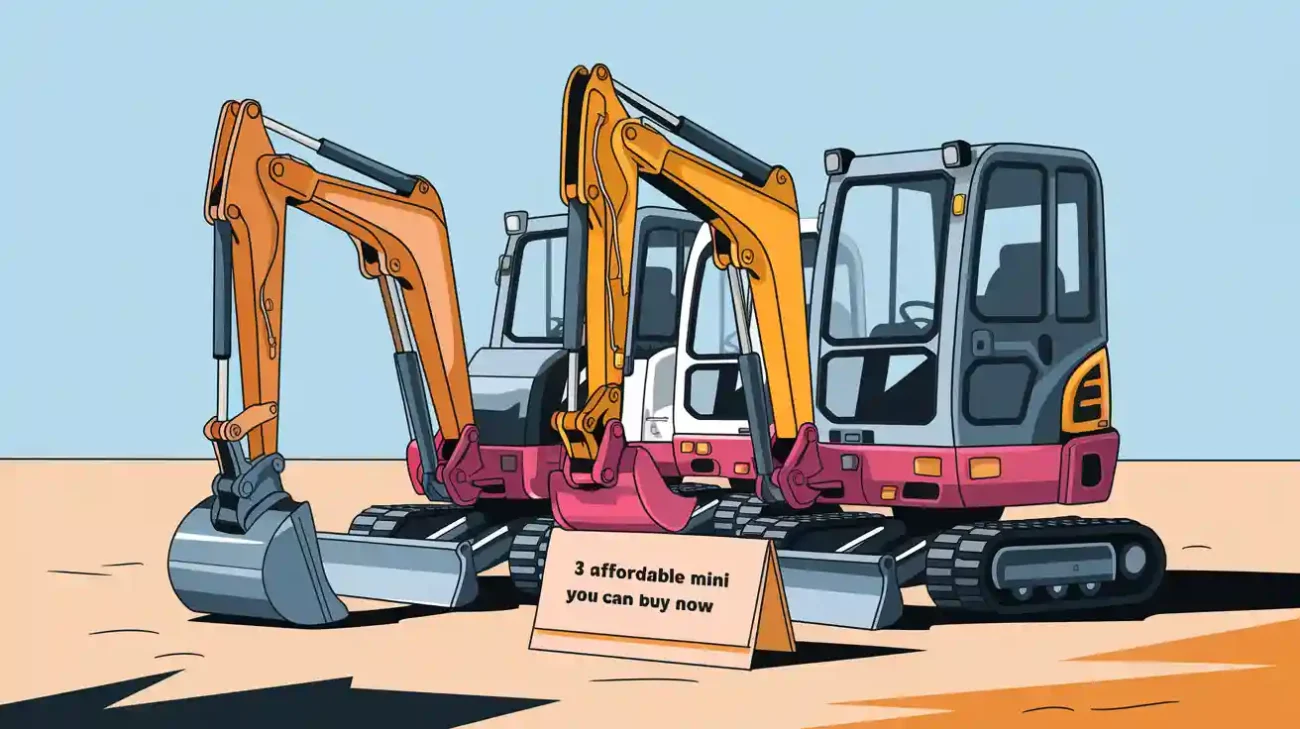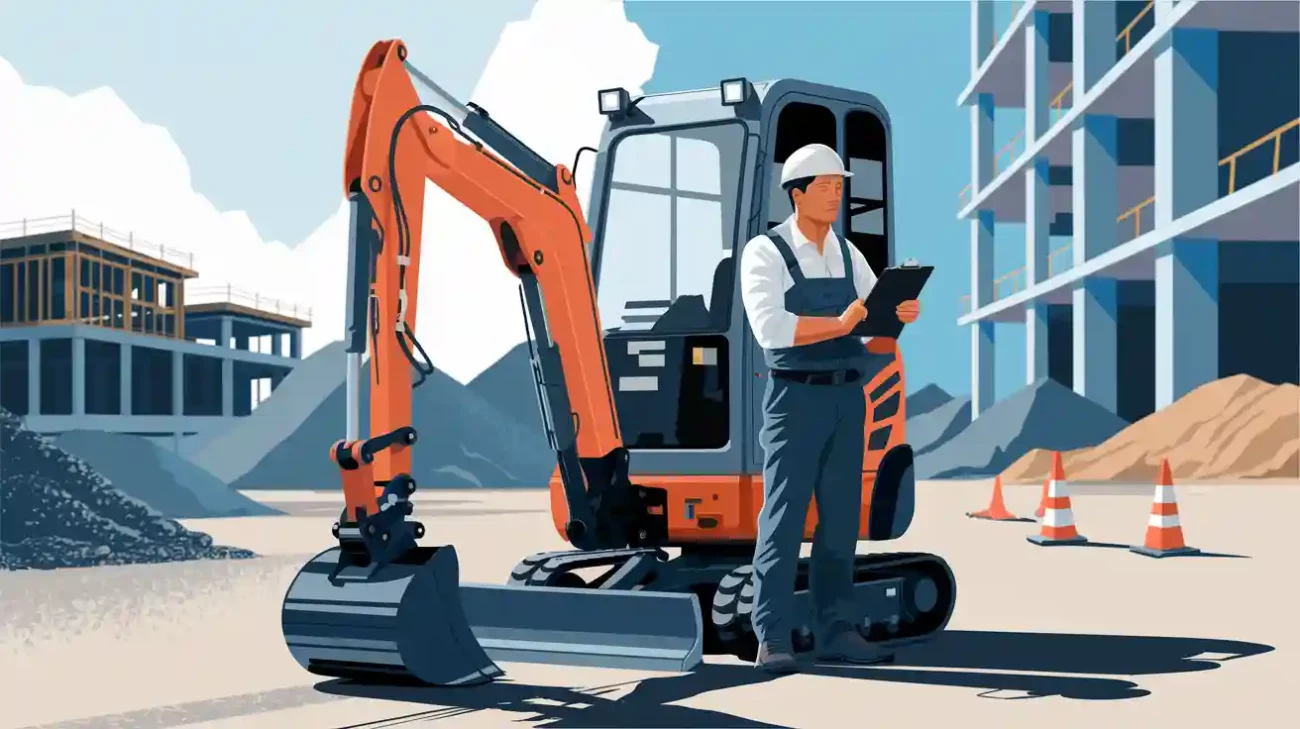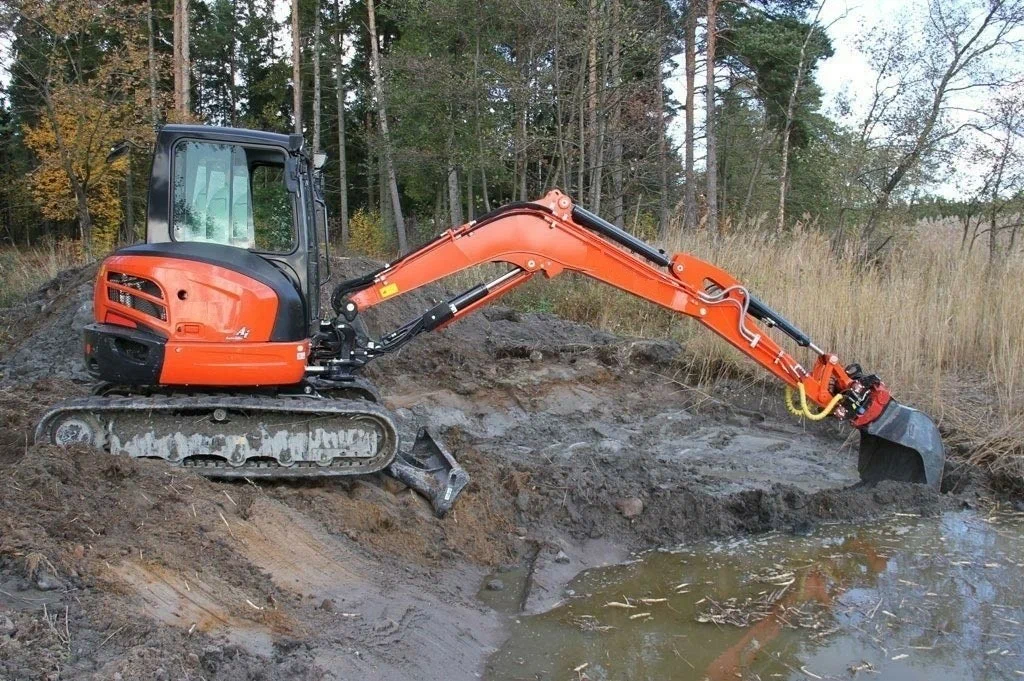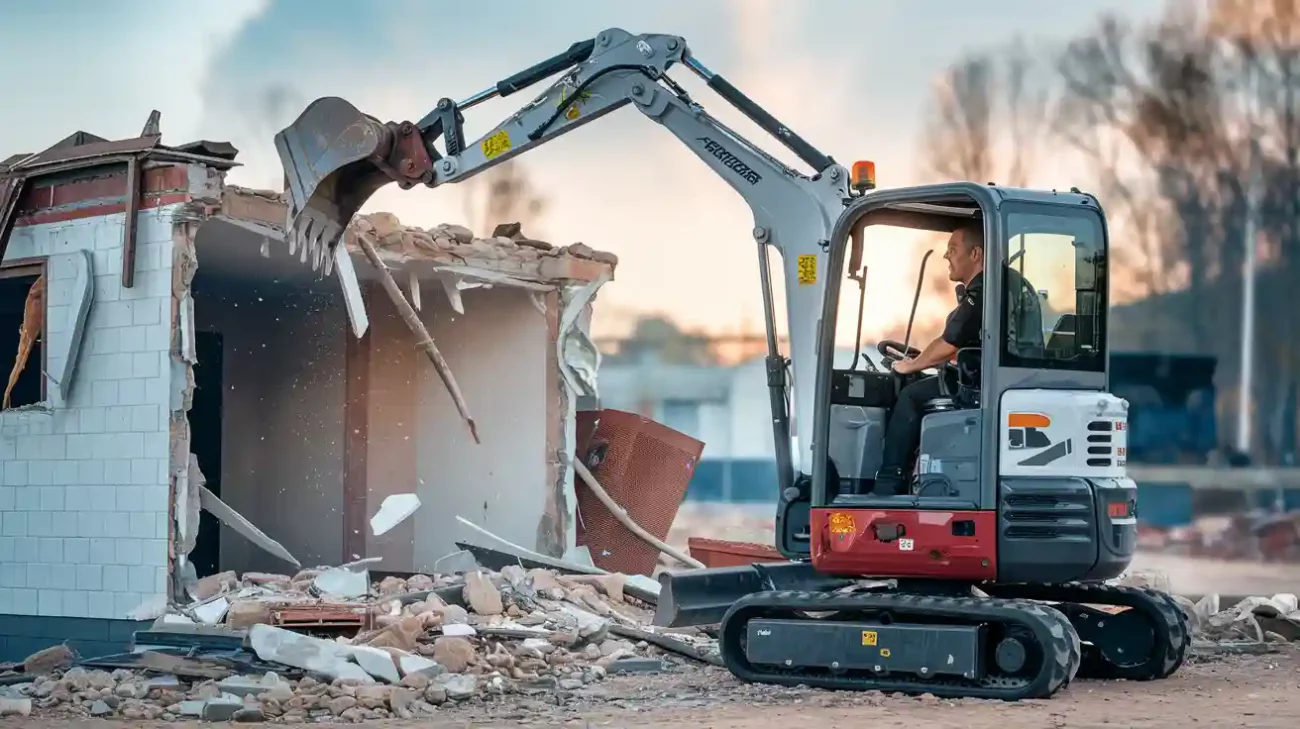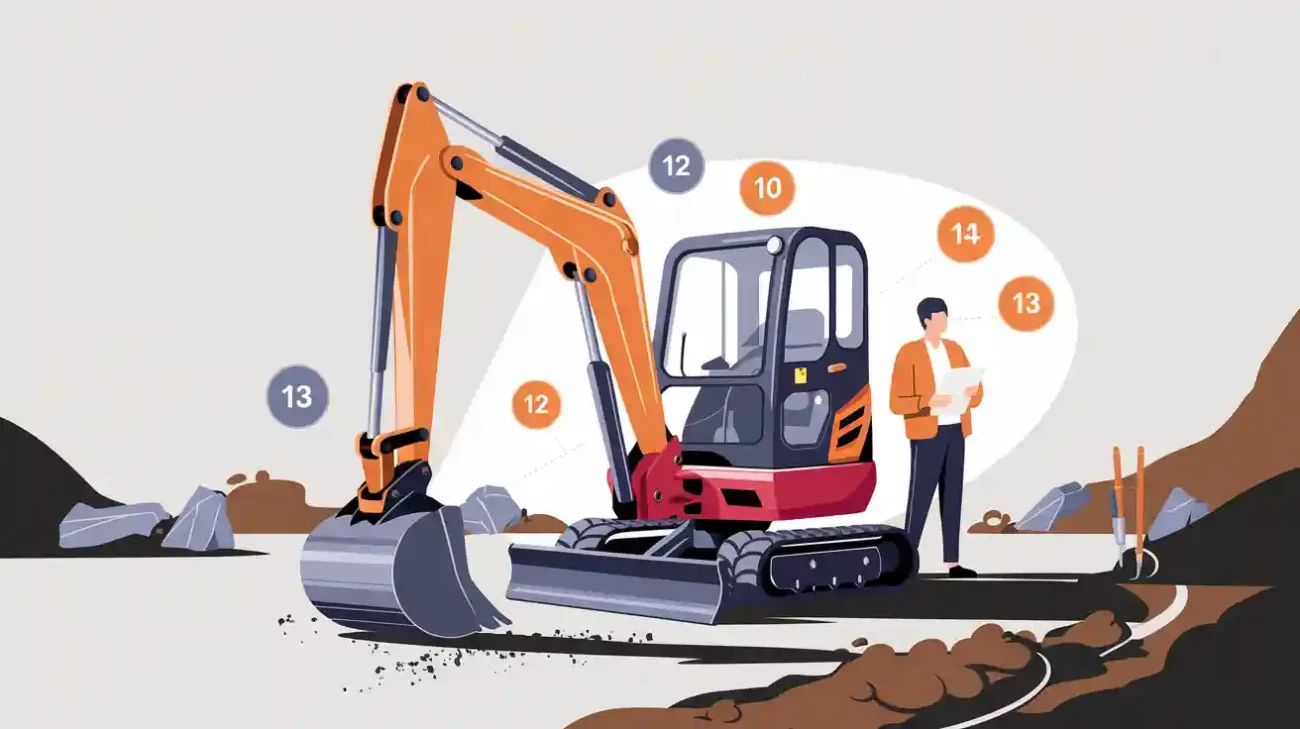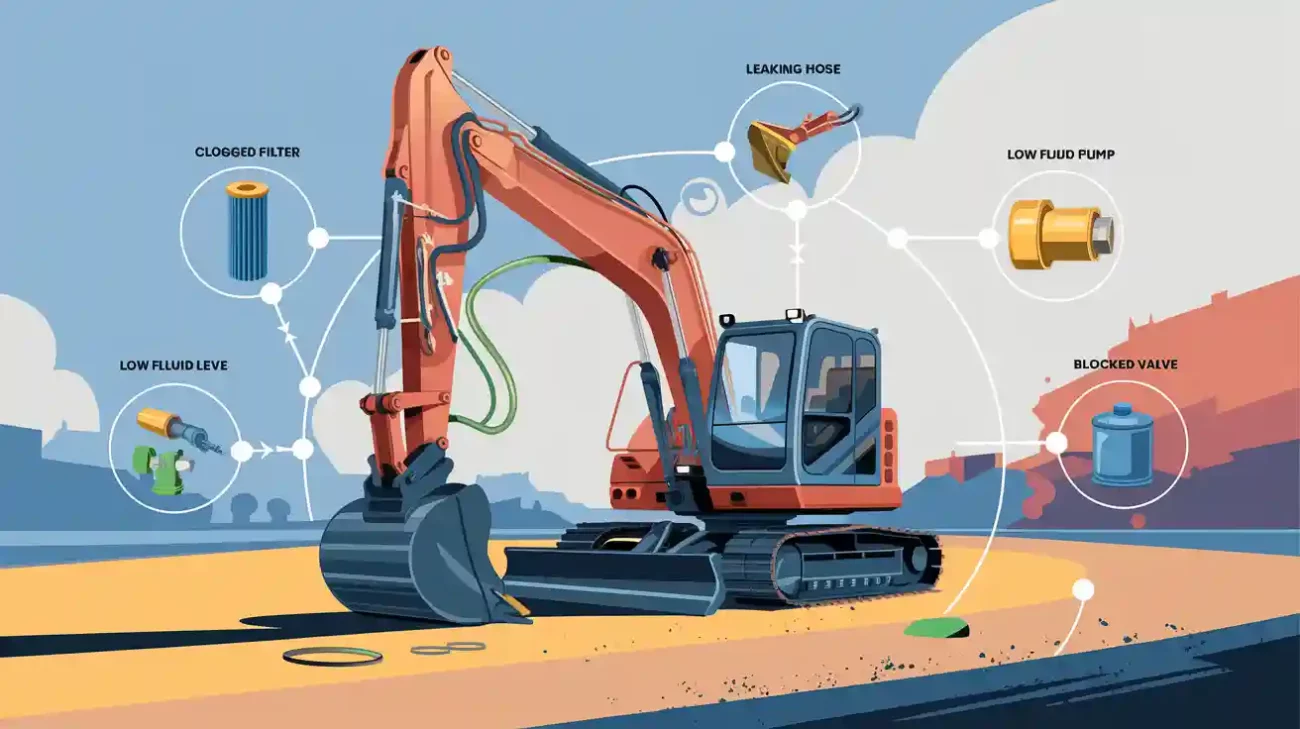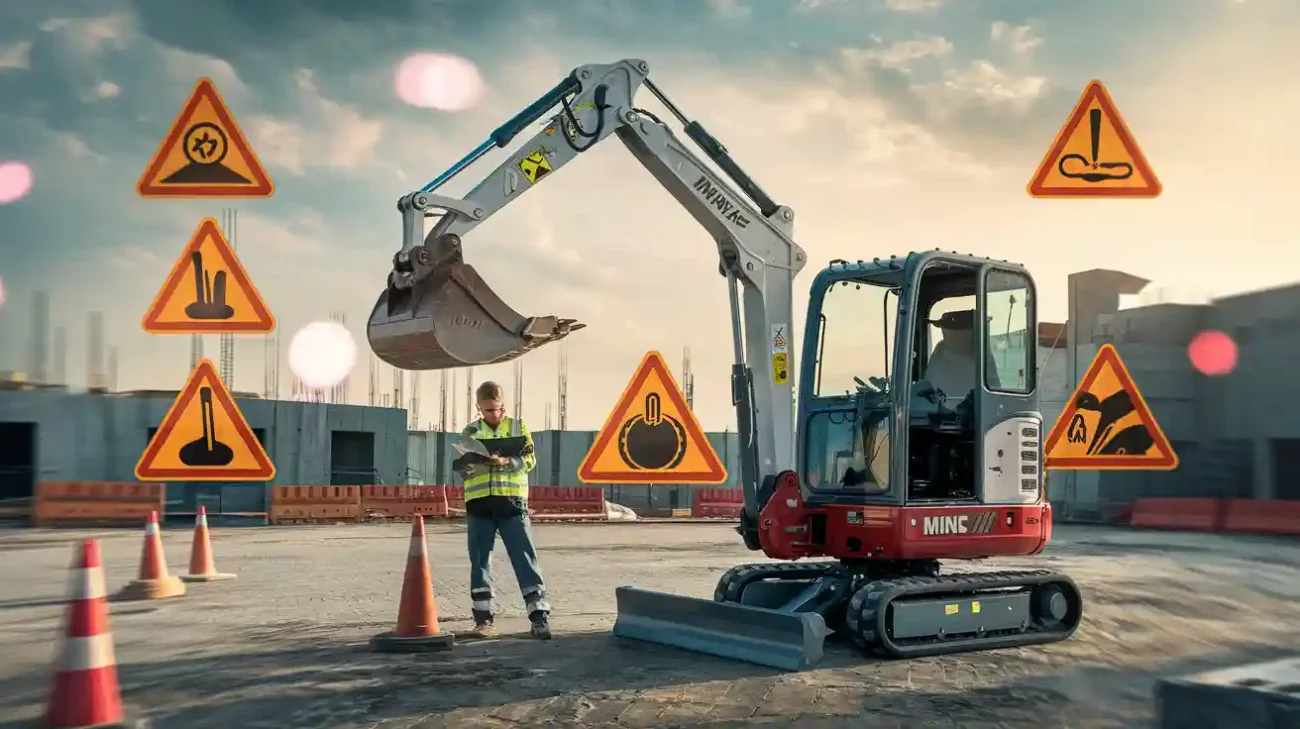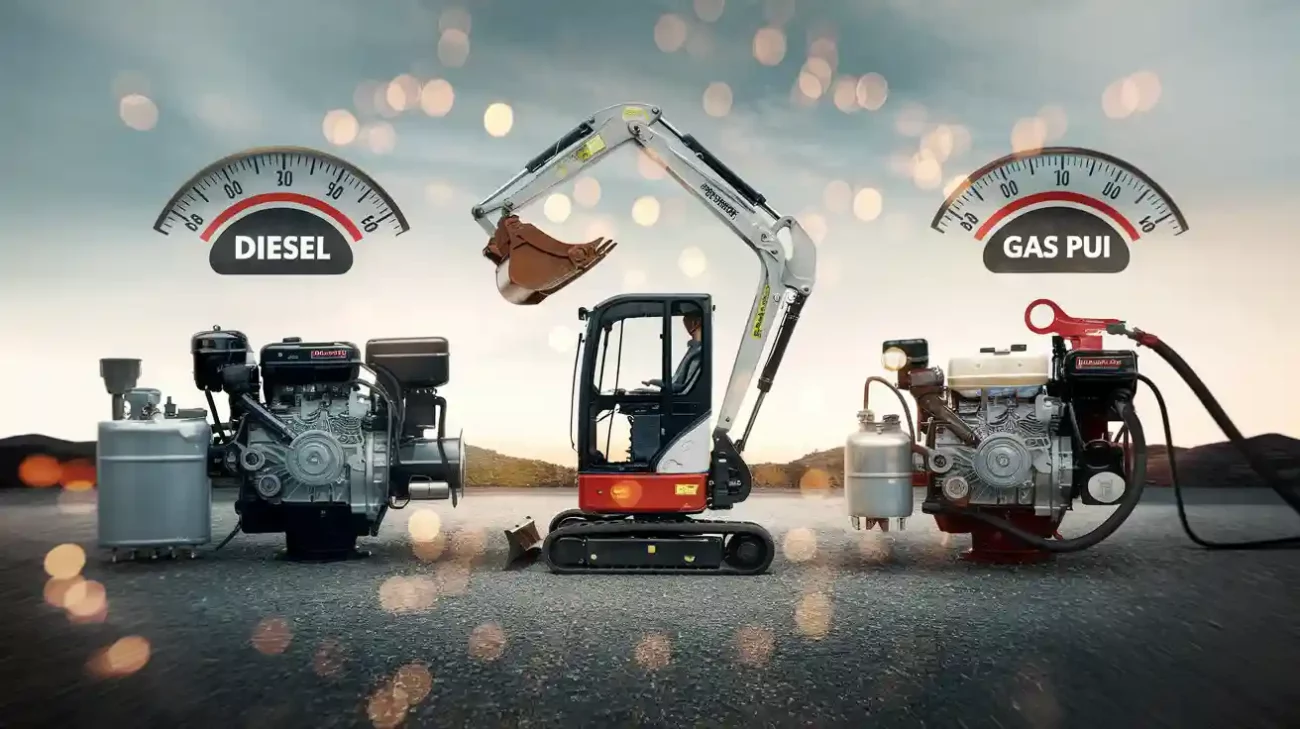Choosing the right mini excavator for sale comes down to your needs. You want to think about your budget, how often you use mini excavators, and what your project demands. Check out the numbers below:
Factor | Example Numbers |
|---|---|
Budget | |
Usage | Under 2,000 hours means lightly used |
Project | Digging depths up to 12 feet |
Buying new equipment can offer peace of mind, but a used mini excavator might fit your needs better. Weigh the pros and cons before you decide.
Key Takeaways
New mini excavators offer the latest technology, longer warranties, and better fuel efficiency, making them a great choice for frequent or long-term use.
Used mini excavators cost less upfront and provide more immediate options, but require careful inspection and may have higher maintenance needs.
Assess your project needs, usage frequency, and budget carefully to choose the right mini excavator that balances cost, reliability, and features.
Mini Excavator for Sale: Cost
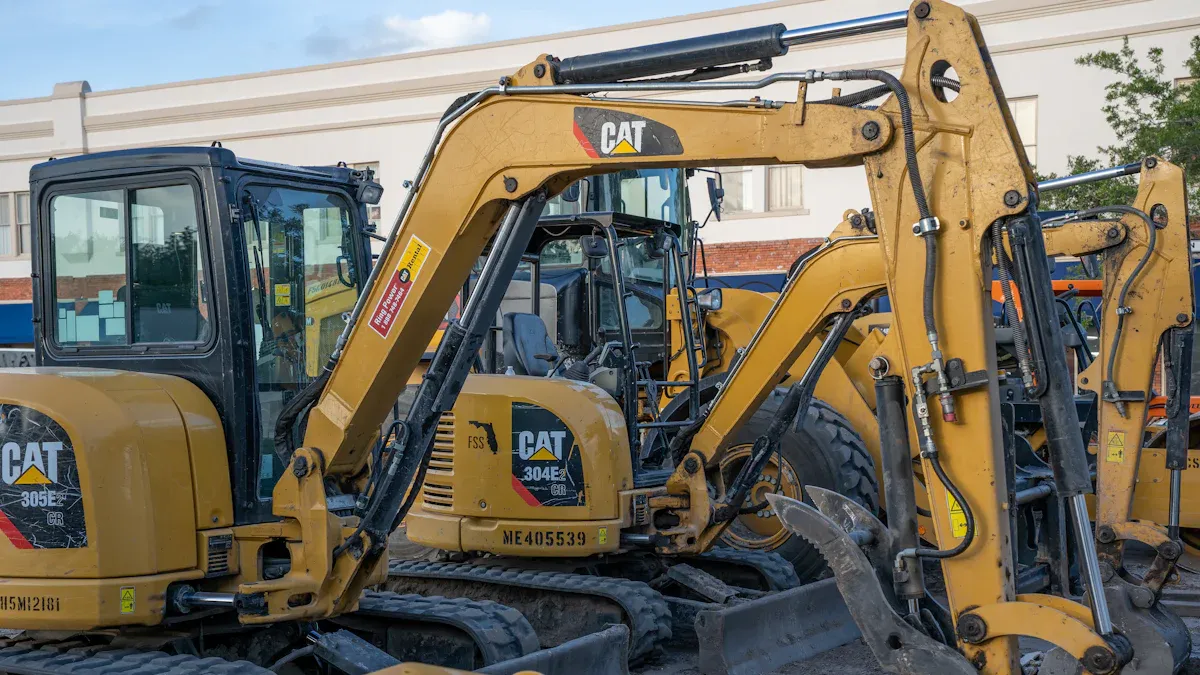
New Mini Excavator: Price
When you look for a new mini excavator, you see a wide range of prices. The cost depends on the size, brand, and features you want. If you want the latest technology and a machine with zero hours, you will pay more. Most buyers see the initial purchase as a big investment, but it can bring peace of mind.
Here is a quick look at what you might pay for a new mini excavator for sale:
Weight Class | |
|---|---|
1-2 tons | $30,000 – $45,000 |
3-4 tons | $50,000 – $70,000 |
5-6 tons | $75,000 – $110,000 |
Premium brands often cost more, but you get advanced features and better support. You also need to think about extra costs, like delivery and setup. If you only need a mini excavator for a short time, renting might make sense. Rental prices usually run from $30–$60 per hour or $150–$350 per day. Delivery fees can add $60–$100 within 10 miles, with extra charges for longer distances.
💡 Tip: If you plan to use your mini excavator for many years, buying new can offer better long-term value and lower repair costs.
Used Mini Excavator: Savings
A used mini excavator for sale can help you save a lot of money. Many buyers choose used mini excavators because of the cost savings. You can find machines that are only a few years old but cost much less than new ones. The price drops as the machine gets older, but you still get a reliable tool for your projects.
Check out this table to see how much you can save:
Age of Used Mini Excavator | Price Range |
|---|---|
1-3 years | $40,000 – $75,000 |
4-7 years | $20,000 – $45,000 |
8+ years | $10,000 – $25,000 |
Let’s compare the savings side by side:
Item | New Mini Excavator Cost | Used Mini Excavator Cost | Savings / Cost Comparison |
|---|---|---|---|
Skid Steer Excavator | $70,000 – $125,000 | $44,000 – $59,500 | |
Example Excavator | $80,000 (new) | $20,000 (used) | $60,000 savings |
Cost per Hour | $8 (new, 10,000 hrs) | $34 (used, higher maintenance) | Used can still offer cost-effectiveness |
You see real cost savings when you buy used. Even after you pay for extra maintenance, the total cost of ownership can be much lower. Many buyers find that used mini excavators give them the cost-effectiveness they need for smaller budgets or short-term projects.
You get more choices in your price range.
You can upgrade to a bigger or newer model later.
You keep more cash for other project needs.
🏷️ Note: Always check the condition and service history before you buy a used mini excavator. This helps you avoid surprise repair bills and keeps your cost savings high.
If you want a mini excavator for sale that fits your budget and still gets the job done, looking at used options can be a smart move. You get the cost-effectiveness you want and the savings you need.
Depreciation and Value
New Mini Excavator: Depreciation
When you buy a new mini excavator, you get the latest features and a machine with zero hours. But you also face the biggest drop in value right after your purchase. Like new machinery in general, a new mini excavator loses a chunk of its price as soon as you start using it. This is called depreciation. The first few years see the fastest loss in value. If you plan to keep your equipment for a long time, this may not bother you. But if you want to sell or trade it in a few years, you might get less money back than you expect.
🏷️ Tip: New mini excavators often come with better warranties, but you pay for that peace of mind with higher depreciation.
Used Mini Excavator: Resale
A used mini excavator gives you less depreciation to worry about. Most of the value drop has already happened before you buy it. This means you can often resell your machine for close to what you paid, especially if you take good care of it. Mini excavators hold their value better than many other types of used machinery. For example, an eight-year-old mini excavator can keep about 50% of its original price. That’s much higher than larger machines, which might only keep 25-30%. The strong resale value comes from their popularity and the many ways people use them.
If you choose a well-maintained used mini excavator from a trusted brand, you protect your investment. You also get more flexibility if your needs change later. When you look at value, used machinery often gives you the best mix of savings and less depreciation.
Reliability and Maintenance
Lifespan
When you look at mini excavators, you want a machine that lasts. Most mini excavators have an average lifespan of about 10,000 hours. This matches what you see with bigger hydraulic excavators, which often retire around 9,800 hours because of major repairs. How long your machine lasts depends on how well you take care of it, how you use it, and even the weather where you work. If you use your mini excavator for heavy demolition or in muddy areas, you might see faster wear, especially on the undercarriage and tracks.
Brand reputation matters, too. Some brands, like Caterpillar, Komatsu, and Volvo, have proven reliability and hold their value well. Newer models may have advanced features that help with durability, but you still need to keep up with regular care. If you choose a used mini excavator from a trusted brand, you often get proven reliability and strong resale value.
🛠️ Tip: Always check the undercarriage, bucket, pins, and hydraulic system before buying a used mini excavator. Good maintenance records can show you how well the machine was cared for.
Maintenance
You need to think about ongoing costs when you own mini excavators. Maintenance is not just for used machines—new ones need it, too. Most brands recommend daily and weekly checks, like oil changes, greasing, and track adjustments. These tasks help you avoid big repairs and keep your machine running longer.
Maintenance needs depend more on how many hours you use the machine and its condition, not just if it is new or used. Keeping detailed records helps you track long-term operational costs and spot problems early. If you follow the schedule and fix issues quickly, you can extend the life of your mini excavator and enjoy lower long-term operational costs.
Technology and Features
Latest in New Mini Excavators
When you check out the latest mini excavators, you will notice some cool upgrades. These machines now come packed with technology that makes your work easier and saves you money. Here are some of the top features you will find:
Hydraulic hybrid systems use common pressure rail (CPR) technology. This system helps your machine run smoother and use less fuel.
You can save between 21% and 32% on fuel compared to older models. That means more money in your pocket over time.
New control systems give you faster response and better control. You will notice how quickly the machine reacts when you move the controls.
The advanced hybrid powertrains and smart control methods are only found in the newest models.
If you want the best performance and the latest features, a new mini excavator is hard to beat. You get more power, better fuel savings, and smoother operation.
💡 Tip: New technology can help you finish jobs faster and lower your running costs.
Feature Gaps in Used Models
Used mini excavators can still get the job done, but you might miss out on some of the latest upgrades. Older machines do not have the advanced hybrid systems or the smart control features. You may notice higher fuel use and slower response when you operate them.
Here is a quick comparison:
Feature | New Mini Excavator | Used Mini Excavator |
|---|---|---|
Hybrid Powertrain | Yes | No |
Fuel Savings | High | Lower |
Fast Control Response | Yes | Sometimes |
If you do not need the newest tech, a used model can still work well. Just remember, you may spend more on fuel and get fewer features.
Warranty and Support
New Mini Excavator: Warranty
When you buy a new mini excavator, you get strong warranty protection. Most manufacturers offer coverage for unexpected breakdowns and defects. This means you do not have to worry about big repair bills right away. You can focus on your work and trust that your machine will keep running. Many brands let you extend your warranty for up to three extra years. You can also pick a deductible that fits your budget, like $0, $500, or $1,000.
Here is a quick look at how warranty and support compare for mini excavators:
Aspect | New Mini Excavators | Used Mini Excavators |
|---|---|---|
Coverage Types | Powertrain, Powertrain+, Ultimate | Powertrain, Powertrain+, Ultimate |
Warranty Extension Terms | Up to 3 years extension beyond base warranty | 1 to 3 years of coverage available |
Deductible Options | $0, $500, $1,000 | $0, $500, $1,000 |
Eligibility Criteria | Up to 3,500 hours, up to 15 model years | Up to 3,500 hours, up to 15 model years |
Benefits | Risk management, predictable repair costs | Same, plus better resale value (1%-5% increase) |
Common Covered Failures | Engine, Transmission, Hydraulics | Engine, Transmission, Hydraulics |
After-Sales Support | Simple claims, dedicated professionals | Same as new, focus on resale and risk |
💡 Tip: A new mini excavator warranty gives you peace of mind and helps you plan your repair costs.
Used Mini Excavator: Coverage
A used mini excavator may not come with the same level of warranty as a new one. Sometimes, you get limited coverage or none at all. This means you might face higher risks if something breaks. Some dealers offer extra coverage for used mini excavators, but it usually lasts one to three years. You can still choose your deductible and get help with repairs for the engine, transmission, or hydraulics.
One big plus is that a warranty on a used mini excavator can boost its resale value by up to 5%. You also get support from professionals who handle claims and repairs. Still, you need to check what is covered before you buy. Not every used machine qualifies for extra coverage, so always ask the dealer for details.
🛠️ Note: If you want less risk and better resale value, look for used mini excavators with warranty options.
Availability and Selection
New Mini Excavator: Lead Time
When you want a new mini excavator, you might expect to get it right away. That is not always the case. Right now, many dealers have longer wait times than before. Supply chain issues have made it harder to keep enough machines in stock. In fact, the average wait for new mini excavators is almost three times longer than it was a few years ago. Some dealers are even taking orders for next year. You may also notice that rental inventories are low, so it is tough to find a machine to rent quickly. If you need a mini excavator soon, you should ask about delivery times before you buy.
⏳ Tip: Plan ahead if you want a new mini excavator for your project. The wait could be longer than you think.
Used Mini Excavator: Options
Looking for a used mini excavator gives you more choices right away. The market is full of different brands and models. You can find machines from top names like Caterpillar, Bobcat, John Deere, and Kubota. Some brands offer over a dozen models, and there are more than 200 used mini excavators from at least eight brands available at any time. You can pick from different sizes, ages, and features to match your needs. This variety helps you find a machine that fits your budget and project. You might even spot a lightly used model with the latest features.
You get more selection.
You can compare prices and conditions.
You can often take your machine home right after you buy it.
🏷️ Note: Always check the condition and service history before you choose a used mini excavator. This helps you get the best value.
Project Needs Assessment
Usage Frequency
Think about how often you plan to use your mini excavator. If you work on big jobs every week, a new machine might make sense. You get reliability and less downtime. If you only need it for a few projects each year, a used model could save you money. Many people buy used mini excavators for seasonal work or smaller jobs. You can always upgrade later if your needs change.
Ask yourself these questions:
Will you use the machine daily, weekly, or just a few times a year?
Do you have long-term plans for more projects?
Is it better to own or rent for your schedule?
🕒 Tip: Track your past and future projects. This helps you pick the right machine for your workload.
Project Scope
Every project is different. You want a mini excavator that matches your job’s needs. Look at the tasks you handle most. Do you dig deep trenches, move heavy loads, or work in tight spaces? The right machine should fit your site and handle your materials.
Here’s a table to help you match your project needs to machine features:
Metric | Why It Matters for Your Project |
|---|---|
Digging Depth | Needed for trenching, planting, or pipe work |
Overall Dimensions | Fits into small or crowded job sites |
Engine Power | Handles tough soil or heavy materials |
Bucket Breakout Force | Breaks up hard ground or lifts heavy objects |
Arm Reach | Reaches across wide or tricky areas |
Dumping Height | Loads trucks or containers easily |
Load Capacity | Moves more material per cycle |
Make a list of your top project needs. Choose a mini excavator that meets those needs now and in the future. This way, you get the best value and performance for every job.
Buying a Used Excavator: Inspection
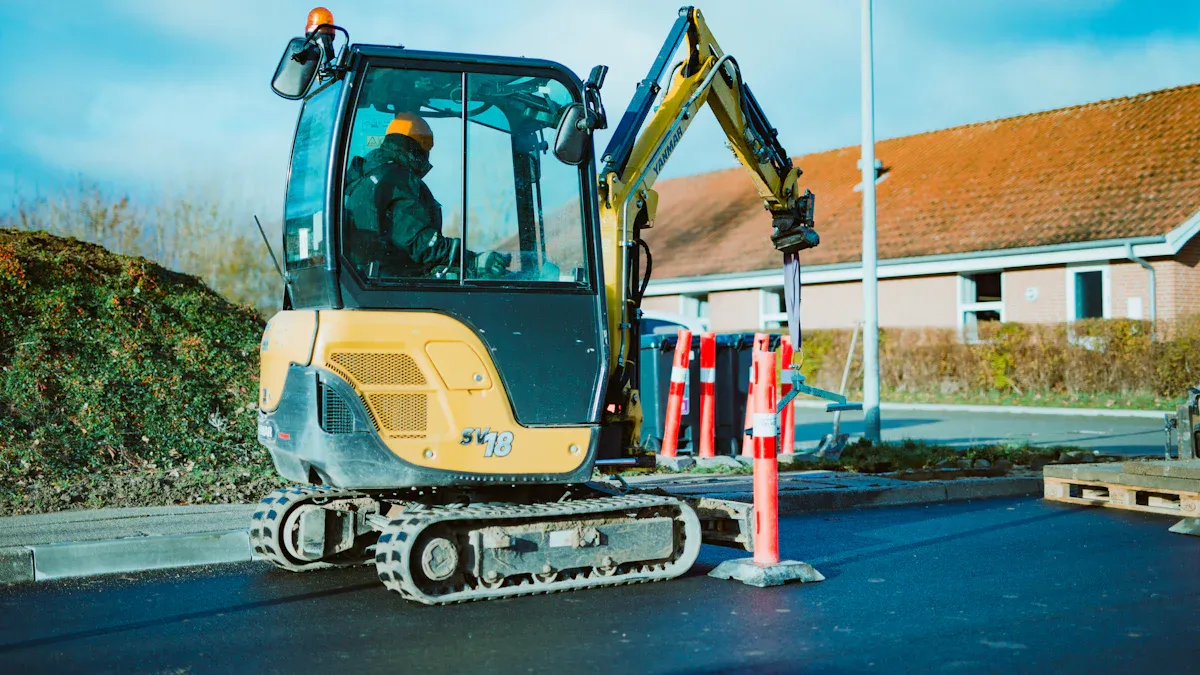
What to Check
When you start buying a used excavator, a careful inspection and testing process helps you avoid costly surprises. You want to make sure the machine is safe, reliable, and ready for work. Here’s a simple checklist to guide you:
Walk around the excavator and look for dents, scrapes, or signs of repair.
Check the tracks for wear and make sure the undercarriage looks solid.
Inspect the hydraulic system for leaks, especially around hoses and cylinders.
Move the boom, stick, and bucket. They should move smoothly without strange noises.
Test the bucket teeth and attachments for wear or damage.
Start the engine and listen for knocks or rattles. Watch for warning lights on the dashboard.
Check the hour meter. Make sure it matches the wear you see on pedals and controls.
Review the condition and maintenance history. Ask for service records and check the seller’s reputation.
Sit in the cab. Make sure the controls, seat, and visibility feel comfortable.
🛠️ Tip: A thorough inspection helps you spot problems early and keeps your investment in used machinery safe.
Red Flags
Some warning signs mean you should walk away or ask more questions before you buy. Watch out for these red flags:
Discolored exhaust smoke (black, blue, or white) when the engine runs.
Fluid leaks under the machine—oil, coolant, or hydraulic fluid.
Unusual noises like grinding, screeching, or clunking during operation.
Excessive vibration or loose movement in the boom, stick, or bucket.
Warning lights or alarms on the dashboard.
Fresh paint or welding marks that might hide past damage.
Hard starts, frequent stalling, or high fuel use.
Hour meter readings that don’t match the machine’s visible wear.
If you spot any of these issues during your inspection, take a closer look or get a professional opinion. Your goal is to find mini excavators that are safe, reliable, and a good value for your money.
Decision Checklist
Key Questions
Before you make your final choice, it helps to ask yourself some important questions. These will guide you to the best decision for your needs and budget. Here’s a checklist you can use:
What is your total budget, and do you need the machine right away or can you wait for delivery?
How often will you use the mini excavator? Will you use it every day, or just for a few projects each year?
Have you compared the costs of buying new, buying used, or renting? Which option gives you the best value for your money?
How fuel efficient is the machine? Will it help you save money on fuel over time?
What are the expected maintenance costs? Can you easily find parts and service nearby?
Did you inspect used equipment for hydraulic leaks, engine condition, and hour meter accuracy?
Does the machine come with a warranty or support plan to help with repairs?
Are the controls easy to use? Will the operator feel comfortable with the seat, armrests, and climate control?
Does the brand have a good reputation? Is there a dealer close to you for quick support?
Will the machine’s technology and safety features help you work faster and safer?
📝 Tip: Take your time with each question. The right answers will help you choose mini excavators that fit your projects and keep your costs low.
You have seen the pros and cons of new and used mini excavators. New models give you better technology, longer warranties, and lower fuel costs. Used machines cost less up front and are ready now, but may need more repairs. Use the checklist to match your needs and make a smart investment.

